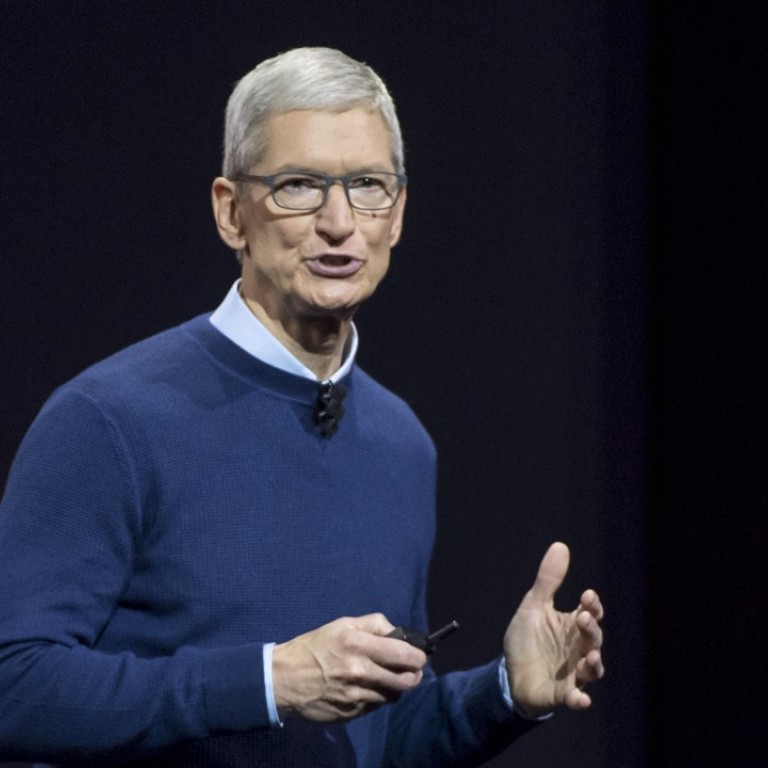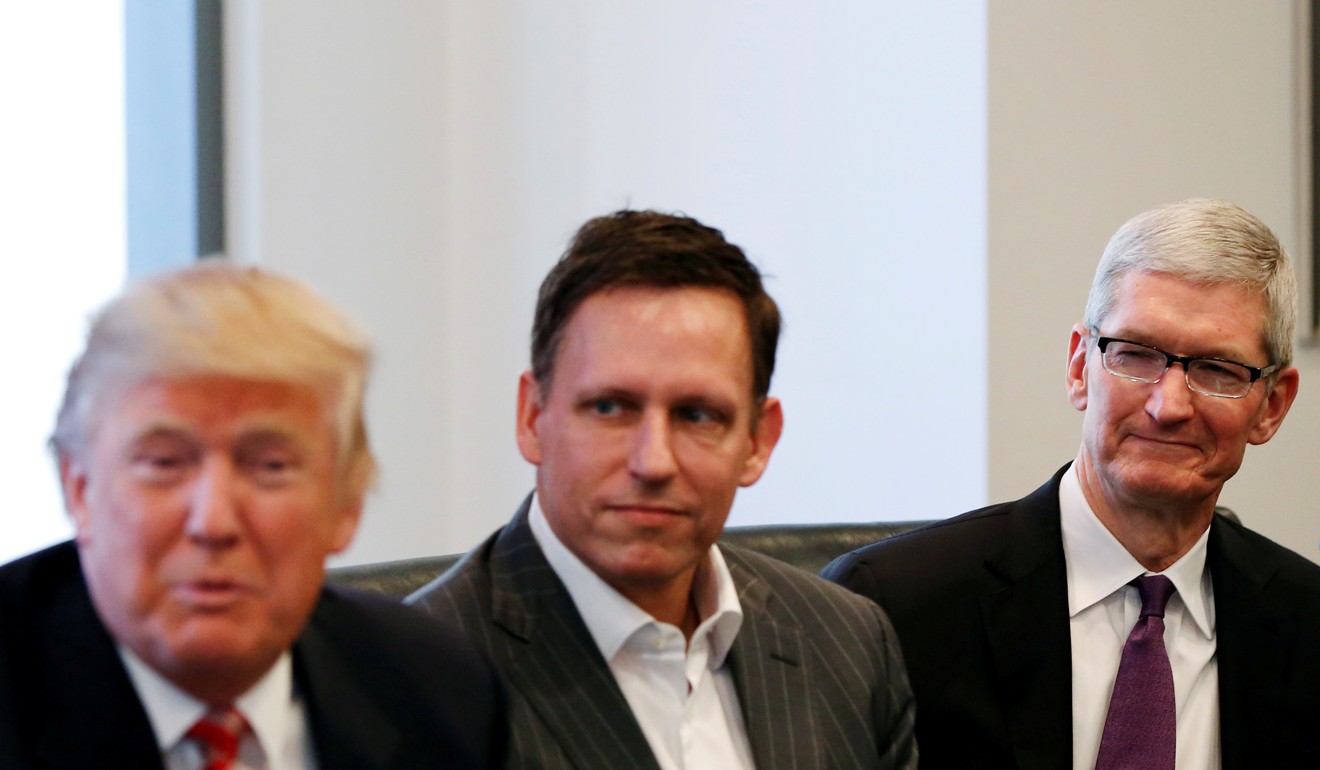
Politico | Apple CEO walks trade tightrope with Trump
Apple's popular gadgets were spared in the Trump administration's latest round of tariffs on US$200 billion worth of products from China, thanks in part to savvy moves by Cook
This story is published in a content partnership with POLITICO. It was originally reported by Steven Overly on politico.com on September 18, 2018
Apple CEO Tim Cook has successfully navigated his company through President Donald Trump's trade war with China – but the escalating fight still threatens to disrupt the iPhone giant's bottom line.
Apple's popular gadgets were spared in the Trump administration's latest round of tariffs on US$200 billion worth of products from China, thanks in part to savvy manoeuvring by Cook that allows him to do what few others can: simultaneously criticise and endear himself to a temperamental, impulse-driven president.
But as both the US and China pledge to ratchet up tensions further, trade experts warn it will be harder for Cook to keep Apple unscathed.
“If Trump stops here they've dodged a bullet,” said William Reinsch, former president of the National Foreign Trade Council and a senior adviser at the Center for Strategic and International Studies. “But if he goes ahead, then it's like Groundhog Day. Do it all over again.”
Trump has already warned that he could impose tariffs on an additional $267 billion worth of goods, covering just about all Chinese exports to the US. That could very well ensnare Apple's Chinese-made devices, including the flagship iPhone, just as the highly lucrative holiday shopping season gets underway.
But just as worrisome would be retaliation from China. The country announced $60 billion in tariffs on US products Tuesday, but it could ultimately look to punish Trump by making it harder or more expensive for US companies like Apple to ship products out of China.
“I would be so worried if I was Apple about any hint that the Chinese are going to curtail exports,” said Marc Busch, a former adviser to the US Trade Representative and international business diplomacy professor at Georgetown University. “That is a really big escalation of this conflict, and Apple and others stand to lose a lot if that’s in fact what happens.”
Cook is among the few tech industry leaders willing to engage with the president directly and publicly, despite clashing opinions on issues like climate change and transgender troops. The CEO travelled to the White House in April for a meeting with Trump and months later dined with the president and first lady Melania Trump at his Bedminster, N.J., golf course.
That personal touch appears to have paid off in the latest round of tariffs, as USTR removed smart watches and bluetooth devices from its list of affected goods. That saved popular Apple products like the Apple Watch and AirPods from an inevitable price hike.
Others in the tech industry didn't fare so well. Items still on the list include technology used to process and store data, as well as routers, modems and electronic calculators. Dean Garfield, CEO of the Information Technology Industry Council, which counts Apple as a member, called the tariffs “reckless” and said they “will create lasting harm to communities across the country.”
Cook offered his own explanation Tuesday for why the Trump administration went easy on Apple, telling “Good Morning America” that his company's devices are assembled in China but include parts from the US
“I think they looked at this and said it's not really great for the United States to put a tariff on those type of products,” Cook said.
But signs that Apple is walking a tightrope with Trump abound. After reports emerged that Apple had warned USTR this month that the latest tariffs could raise prices for some of its products and hurt US consumers, Trump tweeted a sharp retort: “Make your products in the United States instead of China. Start building new plants now.”

That appeared to be a reference to comments Trump first made last year, saying Apple planned to build three “big” plants in the US – a claim the company neither confirmed nor denied. The president has since reiterated Apple's alleged pledge on several occasions.
Cook’s efforts to woo the administration have born fruit before. Apple has long pushed for corporate tax reform that includes a lower tax rate on the billions of dollars in cash that the company stores overseas and wants to bring back to the US Trump made that happen in December.
“[Cook] really loved our tax reform. Really loved our tax reform,” Larry Kudlow, Trump’s National Economic Council director, said Monday at the Economic Club of New York. “He said it to me in my office up on the second floor. And I went down to a meeting in the Oval Office and he said it to the president. The president liked that.”
Trump has indeed heaped praise on Apple from time to time, especially after the company announced in January that it would spend $350 billion over five years on its operations and investments in the US Trump lauded that news in both his State of the Union address and remarks in Davos, Switzerland, tying them to the passage of tax reform even though Apple did not explicitly make that connection.
Apple spent $3.76 million to lobby the federal government in the first half of the year – a more modest sum than other tech heavyweights like Google, Facebook and Amazon. Indeed, Apple has not built up the same hulking presence in Washington as its counterparts in recent years.
For now, the trillion-dollar company seems to be relying heavily on its CEO to do the high-level lobbying. But as the trade war between the US, its home base and largest consumer market, and China, its key manufacturing hub, rapidly evolves, that task becomes all the more precarious for Cook.
“Getting in the room is one thing. Getting the answer you want is a different thing,” said Reinsch. “This is a case where Apple got the answer it wanted.”

